The democracy of Macron vs. the democracy of Weber. Round II
Adelina Marini, July 3, 2019
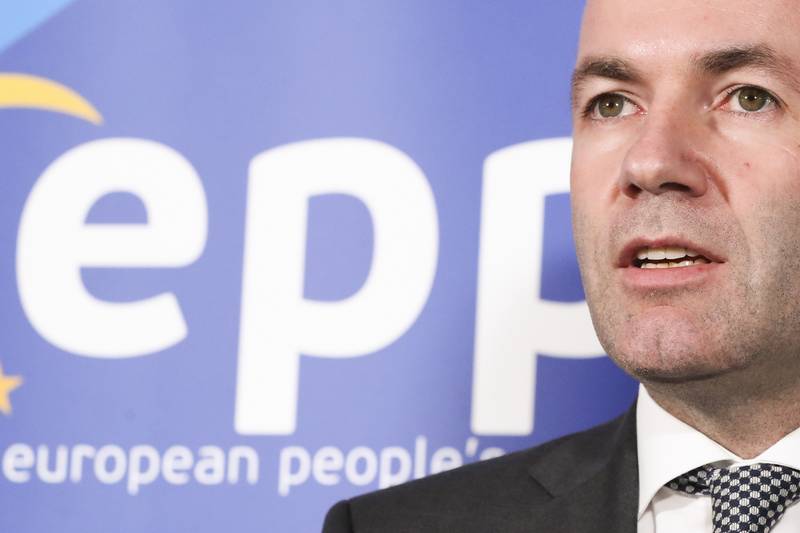 Last year, when he first appeared before MEPs in Strasbourg after his election as French President, Emmanuel Macron announced that his goal was Europe based on "true democracy." By "true" he meant a return to the roots of democracy, that is, with the participation of citizens. That is why, in a European context, he wanted the introduction of a transnational European ballot that would allow European citizens to vote directly for European MEPs, not only through national lists. His thesis drove him into a collision with the leader of the EPP parliamentary group in the European Parliament, Manfred Weber (Germany), for whom the system of leading candidates (Spitzendandidaten) is the greatest achievement of European democracy. They held a verbal duel on April 24 in Strasbourg, during which Mr Weber threw a boomerang to Macron, saying that the only real democracy was only parliamentary democracy.
Last year, when he first appeared before MEPs in Strasbourg after his election as French President, Emmanuel Macron announced that his goal was Europe based on "true democracy." By "true" he meant a return to the roots of democracy, that is, with the participation of citizens. That is why, in a European context, he wanted the introduction of a transnational European ballot that would allow European citizens to vote directly for European MEPs, not only through national lists. His thesis drove him into a collision with the leader of the EPP parliamentary group in the European Parliament, Manfred Weber (Germany), for whom the system of leading candidates (Spitzendandidaten) is the greatest achievement of European democracy. They held a verbal duel on April 24 in Strasbourg, during which Mr Weber threw a boomerang to Macron, saying that the only real democracy was only parliamentary democracy.
At that point it became clear that Europe will be held hostage to the battle between Emmanuel Macron and Manfred Weber, or rather between the different views of the two on what democracy is. Another battle between the French vision for Europe and the German one. A year later, the boomerang returned to Weber, who seems to be losing the chance of his life to become the head of the European Commission with no qualifications whatsoever, in a procedure that proved to be controversial, to say the least, from a democratic point of view. This year, as the last one, the essence of the collision is a different vision of democracy.
The EU's democracy
The issue of the democratic nature of supranational processes in the EU has long been the subject of academic disputes. There are two predominant theses. According to the first one, the supranational one, the EU lacks democratic legitimacy, at the very least because there is no such animal as a European demos, but also because the most important European decisions are being made in a non-transparent manner. The intergovernmental thesis, on the other hand, argues that since the EU is a union of sovereign states, those states should be leading in decision-making, so national democracy is more important than the supranational one. Both of these theses have serious deficiencies and look at processes selectively.
In fact, the Union is a unique entity which, over the years of its evolution, has been constantly seeking the right balance between the nation-state and a supranational structure. The pressure for more integration, primarily for economic reasons, usually, but not only, is constantly pushing member states into sharing more and more sovereignty at the supranational level. This, in turn, creates the need for legitimizing the processes in a democratic manner. This is the point where the task becomes extremely complex. A superficial analysis of current institutional reality leads to federalist delusions. Those who insist that the EU lacks democratic legitimacy and call for direct elections for the top jobs seem to miss the fact that the Union is still far from federalism.
Following the latest changes to the Treaties from 2009, the situation with democracy is as follows. The Union has several levels of government. The European Commission is the executive body of the Union, but not in the sense that it applies to national governments. The Commission does not make decisions on its own, which the Member States then have to implement. Its executiveness consists of two aspects. The Commission is the only EU body that has the right of legislative initiative, that is, it can propose laws but cannot approve them. Moreover, when a law (a directive, a regulation, a delegated act, a decision or otherwise), it is the member states that apply it in practice and not always immediately. If it is a directive, then the law must pass through the national parliament. In many cases, the Commission makes recommendations on how to apply legislation, but again the member states are those responsible for implementation. In other words, the Commission's executiveness is indirect.
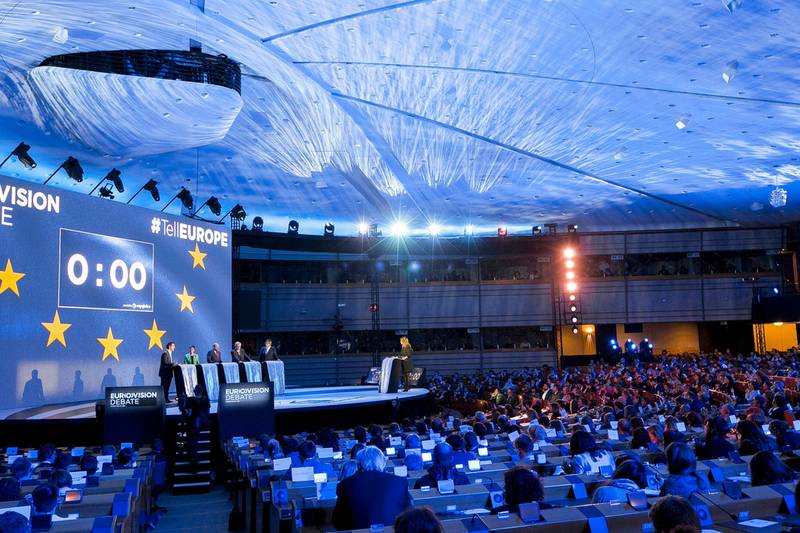 The second aspect is the responsibility of the Commission to ensure that European legislation is respected - its well-known role of guardian of the Treaties. Here, its direct role is to warn when a member state fails to comply with its legal commitments or to initiate an infringement procedure. But, again, it is up to the member states to decide whether to obey or not. In the case of disobedience, the EC may impose financial penalties on the non-complying member state that are due every day until the problem is resolved. Sanctions give the EC a more direct role, but as it is evident in the cases of Poland and Hungary, this can be quite an arduous process which clearly demonstrates that, without cooperation from nation-states, the Commission's executiveness is not worth much.
The second aspect is the responsibility of the Commission to ensure that European legislation is respected - its well-known role of guardian of the Treaties. Here, its direct role is to warn when a member state fails to comply with its legal commitments or to initiate an infringement procedure. But, again, it is up to the member states to decide whether to obey or not. In the case of disobedience, the EC may impose financial penalties on the non-complying member state that are due every day until the problem is resolved. Sanctions give the EC a more direct role, but as it is evident in the cases of Poland and Hungary, this can be quite an arduous process which clearly demonstrates that, without cooperation from nation-states, the Commission's executiveness is not worth much.
The EC has more freedom in making decisions, that is, it does not depend on member states as much, in just two areas - competition and foreign trade. The European Commission is, by its very nature, a supranational body whose main function is to take care of the European interest. It is the body responsible for ensuring that Treaties are respected by all, as this is a guarantee for maintaining the balance of power between small and large member states, between north and south, east-west.
The European Parliament, on the other hand, represents European citizens and holds the Commission accountable. However, Parliament does not have much influence over the Council, which represents national governments. Parliament's powers have been increasing with every amendment to the founding treaties and reached their peak with the Treaty of Lisbon, which extended to the maximum the legislative spheres in which the EP's involvement is mandatory, the so-called co-legislative role. The Lisbon Treaty gave Parliament the right to "elect", unlike before when it could only approve the President of the European Commission. It is namely the word "elect" that gave Strasbourg the motivation to offer the system of Spitzendandidaten.
Claiming, however, that Parliament is the only institution whose candidates are directly elected, would be a little misleading. It is true that MEPs are elected in separate elections that take place within a specified period of time in each member state - within a five day period at the end of May of each year ending with a 4 or a 9. What makes these elections misleading is that they always have a strong national overtone. European issues are hardly ever present in election campaigns, and voters usually perceive them as an interim test period for the government, as a referendum of sorts. This largely undermines the supranational legitimacy of Parliament. As long as pro-European forces have a majority in the EP the institution will function well, maintaining the balance between national and European politics.
As an institution, the EP is, in many respects, similar to national institutions, but it also differs. The most important difference is that MEPs can not "appoint" the Commission, nor can they vote for a no-confidence vote against an individual College member. They can only vote against the Commission as a whole. There has already been a similar case with the Commission of Jacques Santer, which eventually resigned after facing the threat of a vote of no confidence. Perhaps the most significant difference is that the national parliament can change the national constitution if the necessary majority is gathered. The European Parliament can not change the founding treaties. This is done by the European Council. When thinking about democracy at the European level, these differences between European and national politics and governance should also be taken into account.
Speaking of the European Council, it is the least transparent institution, one that represents the leaders of member states - prime ministers and presidents. It was recognized by the Treaties relatively recently and is the body that gives the Intergovernmentalists the belief that the EU is governed by member states instead of supranational institutions. However, the European Council has no legislative power. It only issues political guidelines and makes political decisions about the future of the Union. The European Council is also responsible for approving the enlargement of the Union. During the eurozone crisis, it was the main institution to make the decisions, because the institutional architecture was unable to solve the newly arising problems.
Over the years, the role of the European Council has grown considerably, which has led many analysts to say that intergovernmentalism is returning to the EU. The Council of Ministers continues to be the main legislative body, in most cases in cooperation with the European Parliament. The Council represents national governments.
This entire triangle of power is also supported by the work of the European Court of Justice, and we also need to add in the European Central Bank when it comes to the euro area. As is evident by looking at the different levels of government, democratic legitimacy is also at different levels and depends on the functions at the European level. The EC is accountable to the EP, but at the same time, it is not entirely independent of member states who send their own choices as members of the College of Commissioners and also receive instructions from leaders on what to concentrate on. The EP is directly elected but cannot act alone without the EC and the Council. In the Council, 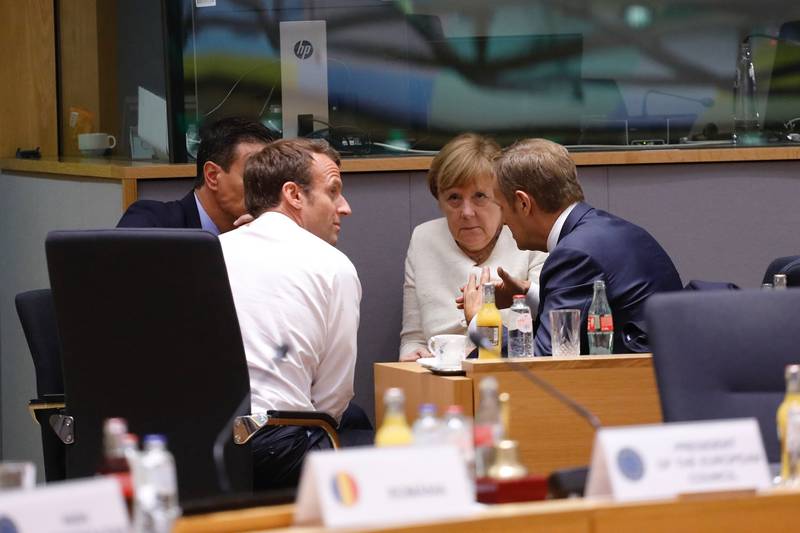 ministers are only subordinate to national control - national parliaments, national elections. So is the European Council.
ministers are only subordinate to national control - national parliaments, national elections. So is the European Council.
This interconnection and interdependence, which may seem overly complex from aside, actually aims to block member states from returning to intergovernmental solutions to the detriment of the common European interest, ergo in violation of the balance of power on one hand, and, on the other hand, any attempt by institutional leaders to take over power from the hands of nation-states. Since the EU has grown to 28 members, dreams about a United States of Europe have evaporated, as not all countries share an equal vision of the future of the Union. That's the reason why supranational democracy is limping.
The procedure for electing the head of the European Commission requires reaching an agreement between the European Council, which is responsible by the Treaty for proposing a nomination, and the European Parliament, which in turn elects. The Treaty does not specify where the person that the EP elects comes from, which creates space for conflict. The Spitzenkandidaten procedure puts the power to elect in the hands of the EP, that is to say through a semi-democratic procedure - first party primaries and then a European-wide campaign, but voting on a national list without any guarantees that the outcome of these elections will lead to the election of this or that head of EC. This deprives the European Council of its right to propose a candidate.
The situation is a bit confusing at first glance because the members of the European Council are usually party leaders and they are the ones who have taken part in the nomination of the leading candidates. However, they do this as party leaders at a European party forum. The European Council is an EU institution and, as such, has the right to nominate the next head of the Commission, as well as the other posts by the way. The European Council, and especially those of its members, such as Emmanuel Macron, who are not members of any European political party, are in a disadvantageous position*. That is what casts serious doubt on the claims made by the EPP headquarters that Emmanuel Macron is destroying European democracy.
Quite the opposite is true - the Spitzenkandidaten procedure takes away the rights of European leaders elected through national elections to represent their citizens at this high forum and make decisions on their behalf. That is exactly why the French president insisted on introducing a transnational European ballot that would allow candidates outside the European political mastodons to run for the highest positions. Manfred Weber, however, was against. Another option that was being discussed, the national parties did not, however, comply, was to have the national political parties' ballots stamped with the logo of the European political family to which they belonged, as well as the name of the leading candidate for the European Commission. This would add further democratic legitimacy to the procedure.
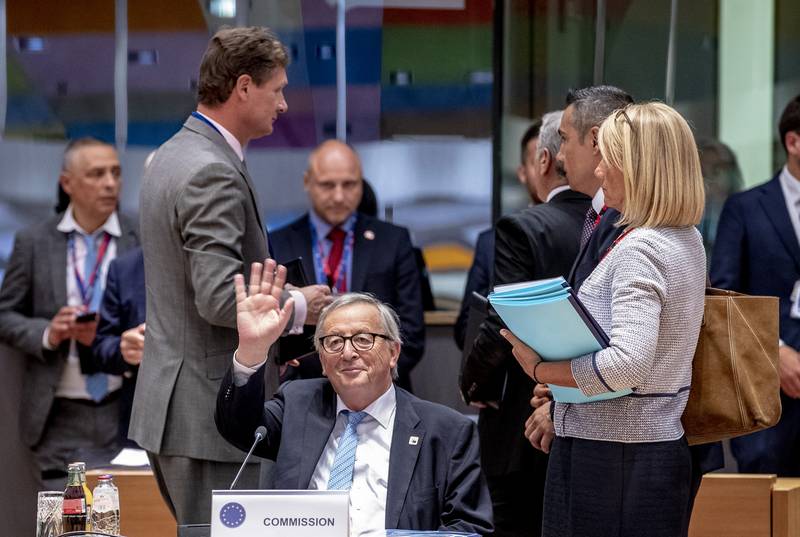 There is also a dispute over whether all other posts should be subject to democratic elections as well, assuming a priori that haggling behind closed doors at the European Council is not democratic enough. However, there is little logic in this, because the chief function of the boss of the European Council is to coordinate the meetings of this body. He/she does not make independent decisions so there is no need to be directly elected by European citizens. He/she represents member countries at major international forums, sticking to a clear mandate given by the leaders. Since its creation, the post has evolved depending on who is in charge, but it is still early to say whether its function really requires such great democratic legitimacy as a direct election.
There is also a dispute over whether all other posts should be subject to democratic elections as well, assuming a priori that haggling behind closed doors at the European Council is not democratic enough. However, there is little logic in this, because the chief function of the boss of the European Council is to coordinate the meetings of this body. He/she does not make independent decisions so there is no need to be directly elected by European citizens. He/she represents member countries at major international forums, sticking to a clear mandate given by the leaders. Since its creation, the post has evolved depending on who is in charge, but it is still early to say whether its function really requires such great democratic legitimacy as a direct election.
The issue of the High Representative for Foreign Affairs and Security is of a similar nature. The usual practice is for foreign ministers in nation states to be appointed directly by governments. In the European version, this is done by the European Council, taking into account, as usual, the geographical and gender balance. While member states still have full foreign policy competences, direct elections for these two posts would not be appropriate and would create a conflict between national governments and European institutions. In other words, the interinstitutional balance will be disrupted.
In general, direct elections to European posts sounds good, but they seem to miss the complexity of the European organism. Moreover, direct voting could lead to discrepancies in the voting weight - big member states can always outvote small ones because of the larger number of voters. Certainly, a fair system can always be constructed, as for instance in the EP small member states have a guaranteed minimum of MEPs and the big ones have a ceiling on the number, but again direct elections must be in line with the responsibilities of the post.
Any changes to these responsibilities, as well as the introduction of direct elections, require changes in the founding treaties. Such amendments will cause an avalanche of referenda and will most likely end in complete failure. In addition, it will probably take much longer than the European constitution, which failed precisely in referenda. Not to mention that there is currently no appetite among member states for Treaty changes, and even less for more supranationality.
Is an institutional war coming?
On Sunday, leaders will face the difficult task of finding the complex balance between geographic, gender and political representation for just four positions, with one of them having professional qualifications and being apolitical are of crucial importance - the leader position in the ECB. The European Council will have to offer the EP a deal that MEPs can accept, and it will be difficult if the deal does not include a Spitzendandidat. Seeking a compromise between leaders of member states is a big enough challenge, but even more so when it comes to a compromise with the EP. If both institutions fail to reach an agreement, it would mean inter-institutional warfare. This would not be a good start for the new term.
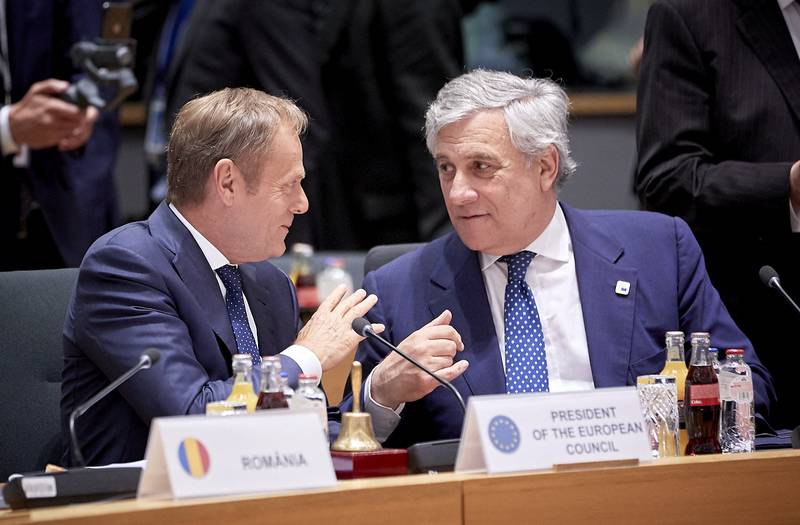
The biggest point of conflict is Manfred Weber, for opposed to his nomination are not only quite a few of the leaders in the European Council but also a solid majority of MEPs. Should Weber drop out, the French president would be more inclined to accept another Spitzendandidat, thus retaining Spitzendandidaten as a system. The Renew Europe parliamentary group, of which Macron's MEPs are members, has two leading candidates - the leader of the former liberal group Guy Verhofstadt and the current EU Commissioner for Competition Margrethe Vestager. At the summit on June 20, the French president made it clear that he would not yield on his position and warned that prolonging the conflict would only complicate finding a compromise. At the same time, German Chancellor Angela Merkel hinted that she was willing to sacrifice Weber for the sake of compromise.
This is unlikely to be welcomed at home where her heir as a chairperson of the Christian Democratic Union, Annegret Kramp-Karrenbauer, stressed that she was sticking to Weber. However, Merkel, who is one foot out of politics, has nothing more to lose at the internal political level and seems willing to help find a compromise. This, of course, will be at the expense of other posts that the EPP will receive in return.
The thing that changed radically in the last EP elections in May was the balance of power. The EPP is nominally the largest party, but it has a tiny lead to the Socialists and Democrats, and the Greens and Liberals have almost doubled their results, turning them into a leading factor in coalition formation. The EPP can no longer dictate the rules of the game, and this is a fact that the party underestimated. If it truly supports democracy at the European level, it must take into account the new political realities and seek support from the rest of the political forces. They are, however, adamant they will not cooperate if Manfred Weber is the EPP candidate.
The boomerang swings back and will probably hit Weber badly. The good thing is that this whole conflict brings many lessons about exactly what is missing in order to improve European democracy. When everything has subsided, and the new figures have taken their positions, it will be appropriate for the EU to think about how to improve the election process, especially since this year for the first time the trend of declining voter turnout has not only been halted but has even increased significantly. Even without changes in the founding treaties, much can be done to improve the electoral process.
To claim, however, that the Spitzendandidaten system in its present state is a solution to the problem of democratic legitimacy is ridiculous and untrue. It was the first step, which went well in 2014, but in 2019 it revealed its many flaws. Even if it survives after Sunday, the procedure will not live long unless it is significantly upgraded and improved, including a transnational European ballot. The rest is hypocrisy.
*MEPs from Macron's party “Forward!” have entered into a coalition with the Liberals' group in the EP (ALDE) and created a new group, called “Renew Europe”, however “Forward!” is still not a member of any of the European parties.
**This text was initially published in Bulgarian on 27 June
Translated by Stanimir Stoev